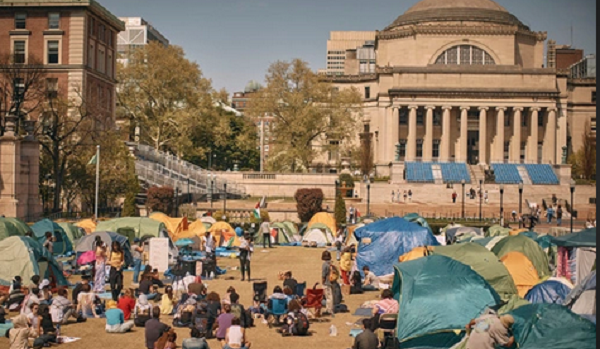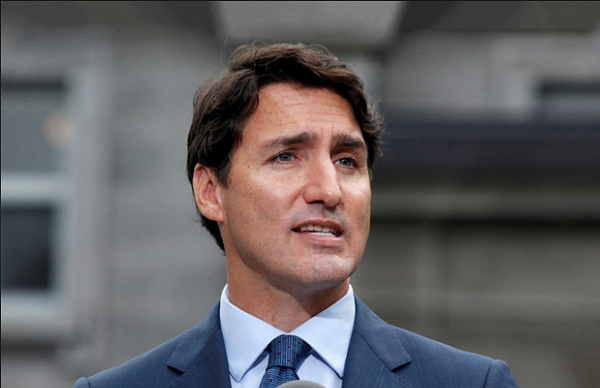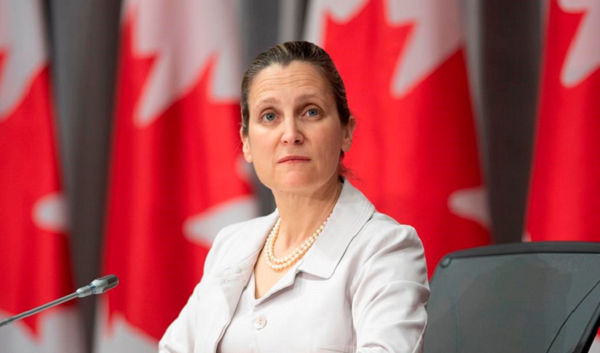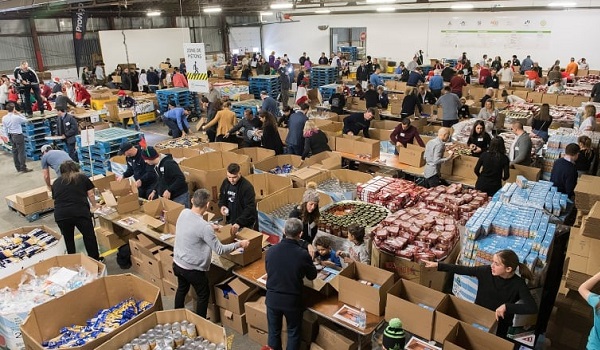Israeli students and their Palestinian counterparts worry over campus protests with gratitude
From their silent and nearly deserted campus in Ramallah, a group of Palestinian students have been watching the spreading protests at universities in North America with a mixture of gratitude and envy.
They are grateful for the pro-Palestinian stance of the students who have set up encampments at more than two dozen universities in the United States, and now several in Canada, too – and envious of the freedom of speech they see on display, something they don’t have living and studying in the Israeli-occupied West Bank.
Barely 60 kilometres away, students at Tel Aviv University are observing the same protests with rising alarm. In the short term, the Israeli students worry about the current of antisemitism they see among the demonstrators. In the longer view, there’s concern that the next generation of U.S., Canadian and European leaders may emerge from a protest movement that sees Israel as an aggressor state, rather than a democracy that needs to be defended from hostile neighbours.
Narmin Haroun, a 21-year-old psychology student on the Ramallah campus of al-Quds Open University – where in-person classes have been suspended since the Oct. 7 Hamas attacks on Israel – beams with excitement when she talks about the videos of demonstrations at universities in the West that she’s seen on TikTok and Facebook. “We’re very proud of our fellow students because they are putting Palestine at the forefront of all issues in the world,” she said, a pair of stylish sunglasses resting atop her tight black hijab.
Ms. Haroun thanked the students in Canada, the U.S. and Western Europe for saying what she feels she cannot. “It’s hard to eat, to sleep, to enjoy life, when we see what’s happening in Gaza. We feel helpless because we can’t do anything,” she said, referring to the war Israel launched in Gaza after Hamas’s Oct. 7 attack. “We can be arrested just for posting our feelings on Facebook.”
Most young Palestinians living in the West Bank have never been to Gaza, which Palestinians hope will be part of a future state including the West Bank and East Jerusalem. But many have relatives in the narrow coastal strip, and say they feel anguish and anger watching the images of the war there that has killed more than 34,000 people, according to the Palestinian Health Ministry.
That frustration was on display on Tuesday when students at Bir Zeit University, near Ramallah, threw stones at the cars of visiting European Union diplomats, accusing them of being “complicit in genocide” in Gaza. A car window was smashed, but no one was injured in the incident.
Such actions have thus far been an exception. Palestinian student politics have long been dominated by the youth wings of the main political parties, the Islamist Hamas and the secular Fatah, with few independents involved. Students at al-Quds Open University said they believed Israeli security forces would quickly crack down on any campus demonstrations and detain participants as suspected Hamas supporters.
There are few curbs on expression at Israeli universities, where many students have taken part in weekly mass protests calling for Prime Minister Benjamin Netanyahu to resign over alleged personal corruption, as well as his handling of the war.
But some students at the Tel Aviv University say they feel the protests in the West have crossed a line between calling for peace in Gaza and a two-state solution – which many Israeli students say they support – and attacking Israel and blaming the Jews for a war that was launched by the Oct. 7 Hamas attack that killed more than 1,100 people and saw more than 200 others taken hostage to Gaza.
Like many Israelis, they interpret the popular protest slogan, “From the river to the sea, Palestine shall be free,” as a call for all Jews to be driven out of the region. A statement released this week by the presidents of nine Israeli universities expressed “deep concern” over the rise of “violence, antisemitism, and anti-Israel sentiment” at U.S. universities. Academic freedoms, the statement says, “do not include the right to engage in violence, make threats against communities, or call for the destruction of the State of Israel.”
Some of those studying at Tel Aviv University say they can see their worlds – the places they would feel comfortable going to travel, work and live – shrinking as the protests spread.
“I always wished to live abroad, but now maybe I won’t do it,” said Jordan Perets, a 24-year-old communications student who said one of her friends living in the U.S. had been ostracized by her social circle simply because she was Israeli. “I think that everywhere is hostile. I am scared of going to the bus station here because someone could try to kill you. And then if you want to go abroad you can’t speak Hebrew. You can’t wear the Star of David.”
Ms. Perets believes those taking part in the North American campus demonstrations don’t understand what Israelis have been through since Oct. 7. Her own family has been internally displaced since early in the war, when their hometown of Shlomi, near the country’s northern border with Lebanon, was evacuated due to missile attacks from the Hezbollah militia, an ally of Hamas.
“It’s disturbing. That’s the word, I guess,” said Asaf Gur, a 25-year-old economics and political-science student. From a geopolitical standpoint, he worried Israel was at risk of losing crucial allies. It’s something he blames partly on Mr. Netanyahu’s government, but also on those in the West who aren’t standing with Israel, a democracy, as it confronts an enemy, Hamas, that is backed by Iran, Russia and other autocratic states.
“We depend on the U.S. and on the West in general, and when you see the educated people in the U.S, and in Europe and Australia and the such protesting against Israel, against an ally, it’s terrifying,” Mr. Gur said.
Back in Ramallah, the calm on the campus of al-Quds University was a source of some embarrassment for the few students who roamed its halls earlier this week. “Palestinian students should be leading the global movement ourselves – but the checkpoints, the arrests, and all these repressive measures, prevent us from gathering,” said Moeth Salahalben, spokesperson for the university’s student council, sitting beneath portraits of Palestinian president Mahmoud Abbas, his predecessor Yasser Arafat, and other Fatah heroes.

Mr. Salahalben said “dozens” of other al-Quds students had been arrested for attending off-campus demonstrations organized by the political factions. It’s far worse in Gaza, of course, where the Palestinian news agency Wafa has reported that all 12 postsecondary institutions in the narrow coastal territory have been damaged or destroyed in more than 200 days of fighting.
“Many of my students were killed and many were injured. Until now, people are just trying to live, there’s no time to learn or to study,” said Khaled Safi, a professor of history and civilizations at al-Aqsa University in Gaza. In a telephone interview, he said he hadn’t seen most of his students and colleagues since Oct. 7, but regularly saw announcements of their deaths posted to social media.
Prof. Safi said he draws more hope from the student protests in the U.S. than he does from the ceasefire negotiations that took place during U.S. Secretary of State Antony Blinken’s visit to the Middle East this week.
But while Israeli and Palestinian students alike are looking for potential friends and allies among students and academics in the West, they see themselves as having almost nothing in common with those who reside on the other side of the conflict they live in.
Ms. Perets and Mr. Gur say they have no contacts with any students living in Gaza or the West Bank. Mr. Salahalben gives the same answer when asked whether his student council has any linkages with student groups at Israeli universities. “This is an impossible thing,” he said.
This article was first reported by The Globe and Mail












